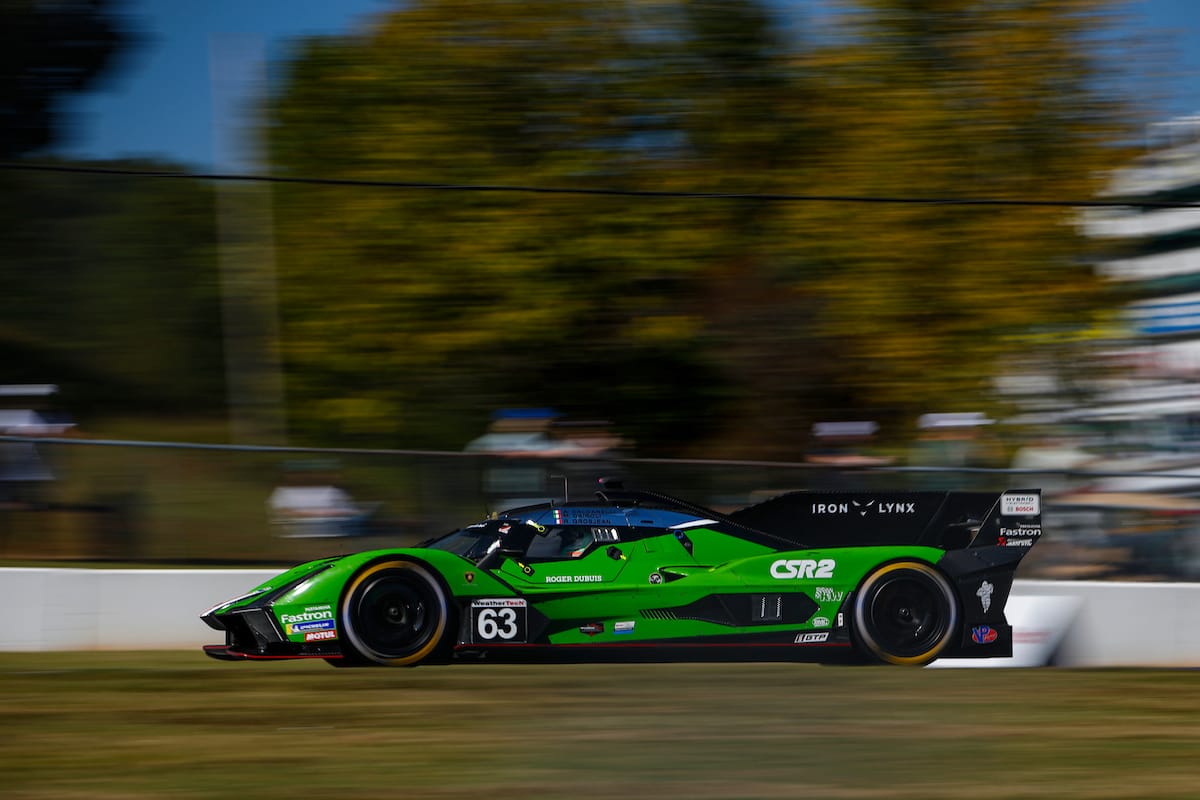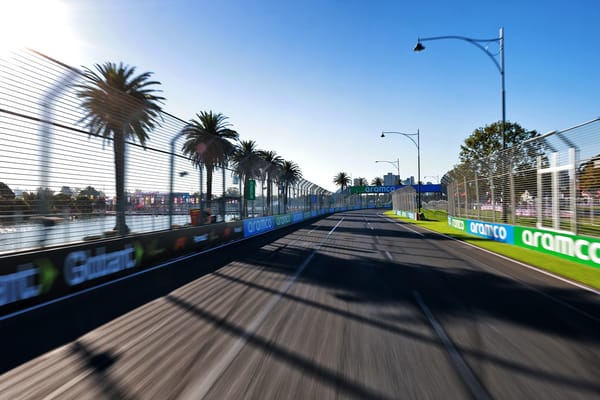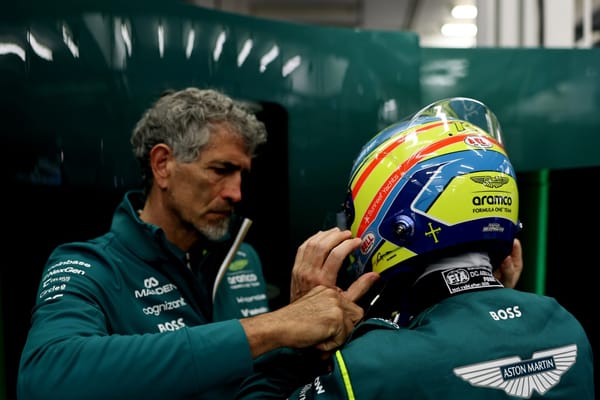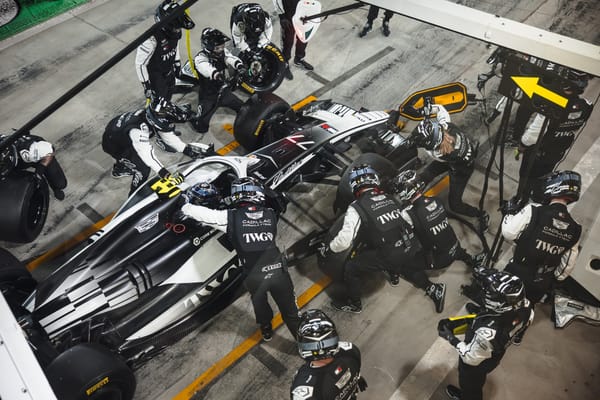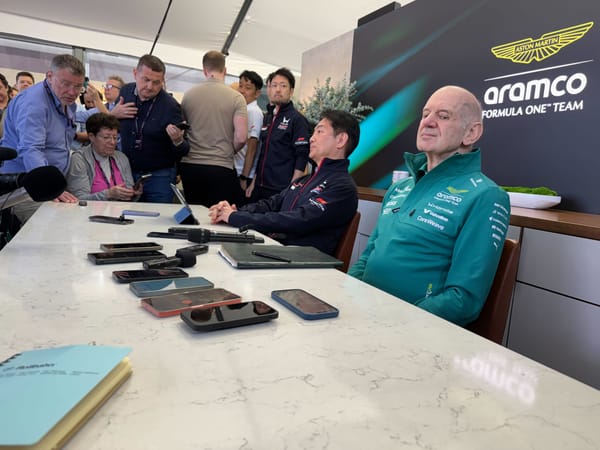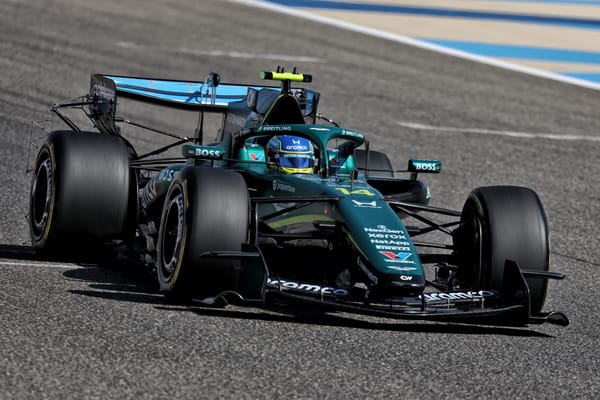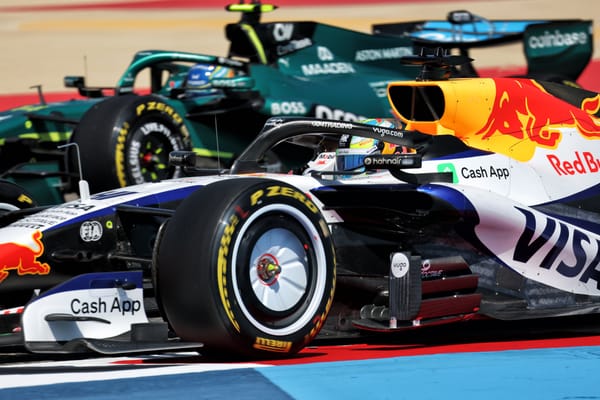Ferrari to Red Bull and back: A forgotten F1 junior's path to glory
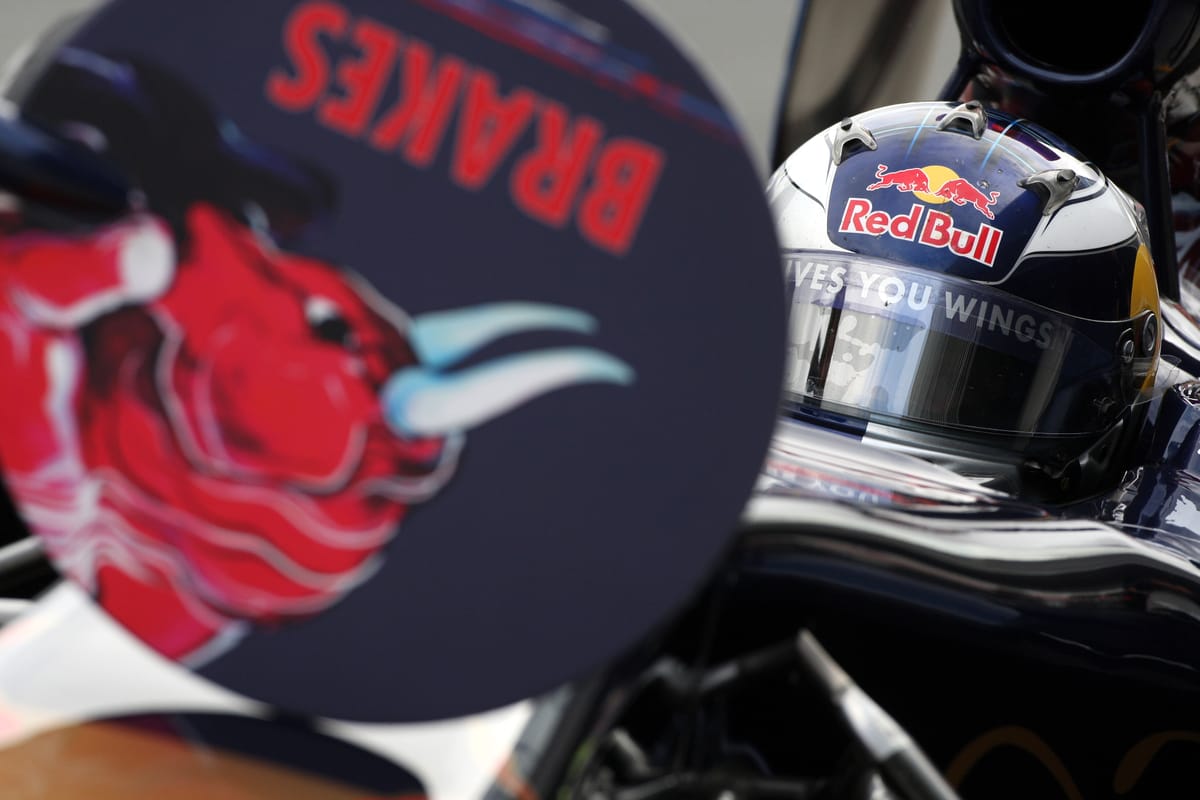
Unless you're a devoted motorsport aficionado, the name of Mirko Bortolotti is likely to evoke one of two reactions.
Reaction number one is informed by recency. Bortolotti may well have a claim to being the greatest Lamborghini factory driver in the brand's motorsport history, by virtue of a DTM title and a role in its Spa 24 Hours win, and between those two milestones you may also be well-aware of the less-than-savoury bit of red-flag ignoring he had done at the Nurburgring Nordschleife.
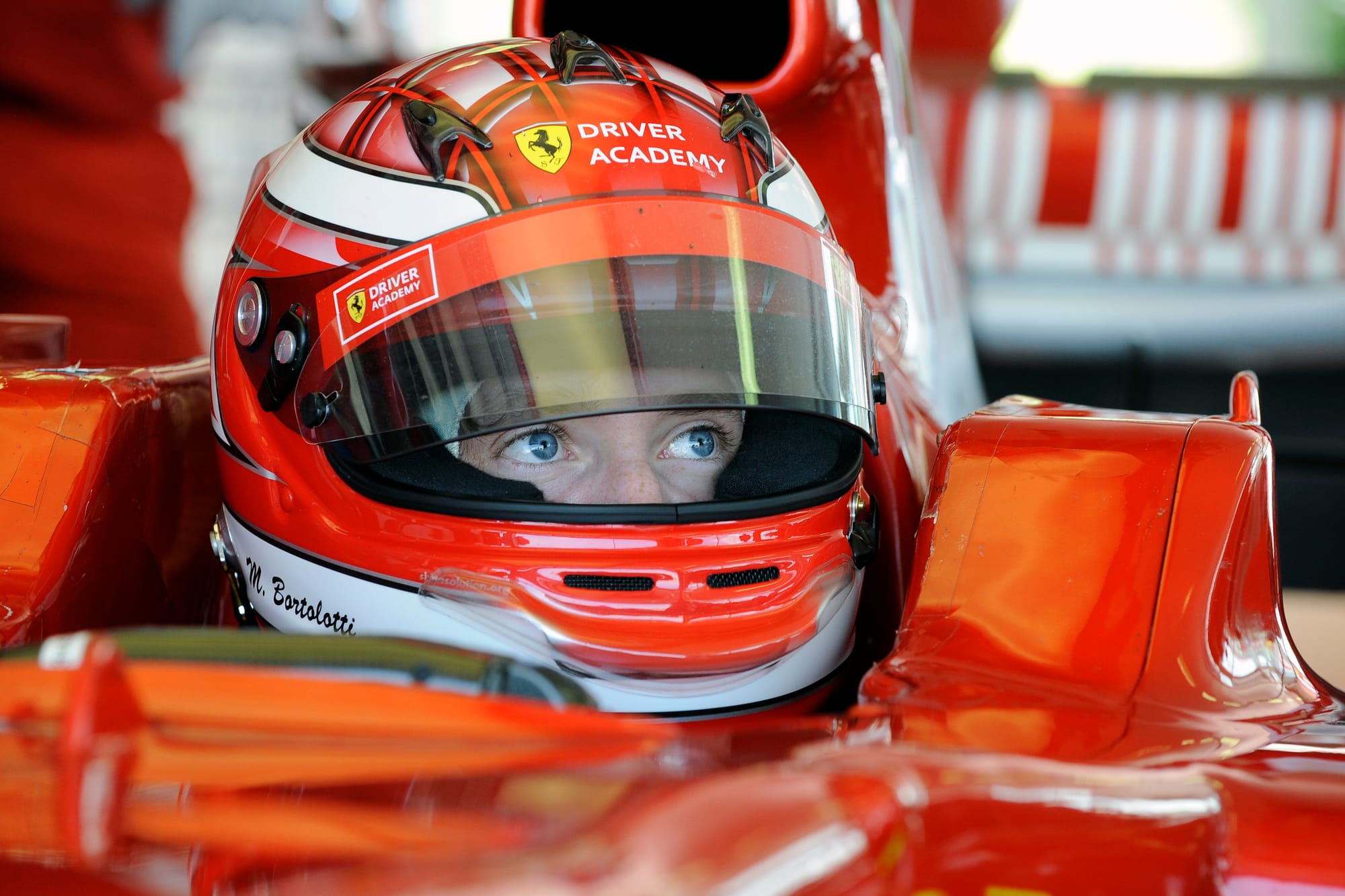
But if you're more of a Formula 1-focused fan, you may find yourself saying something like: "Oh, that's the guy who set that Ferrari F1 test track record or something? Or was he a Red Bull junior? Or, wait, did he test a Williams?"
All of these are, indeed, factual about the 35-year-old Italian - but the connecting tissue between that Bortolotti of old and this new Lamborghini-era Bortolotti is not your typical F1 junior-to-sportscar luminary journey. Instead, it was very possible for Bortolotti's brush with international motorsport prominence - and his whole career - to have ended right as his F1 dream did.
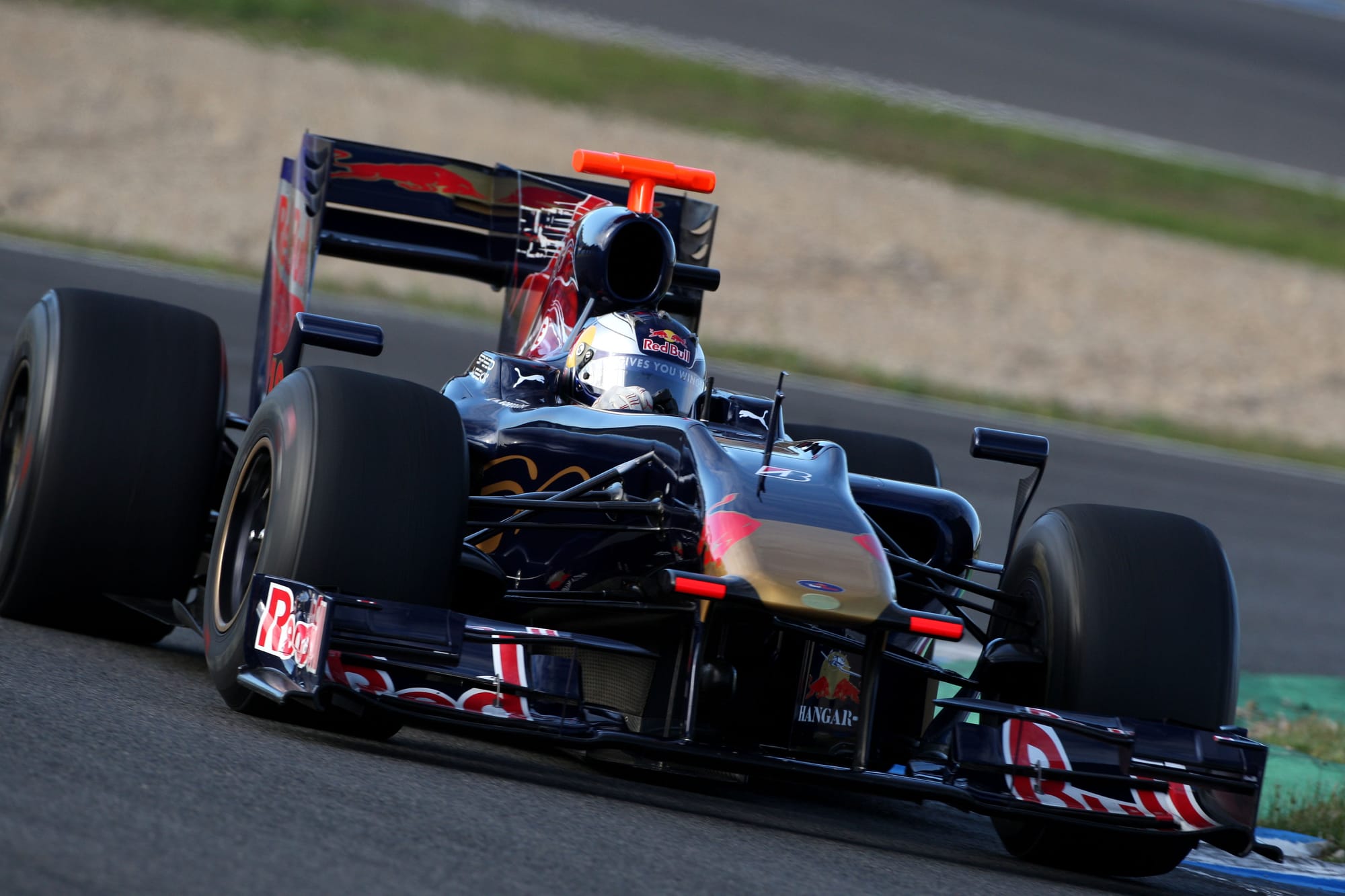
Before we get into that, though - why did his F1 dream end? Why did a driver who wore some of the most prestigious colours in modern F1 end up surplus?
Over how it played out, Bortolotti doesn't seem to hold a grudge. Certainly, F1 is no sore subject. As we sit down in the motorhome of his new-for-2025 DTM employer Abt, he tells The Race he is still an avid F1 fan, following every grand prix weekend that his schedule allows, every session in that weekend, all the extra features put together by the various broadcasting teams, too.
There is no sadness, "not at all", and he's convinced all the testing he'd carried out in his various F1 roles - "I think 11 or 12 test days with three teams" - has paid off in spades in his career afterwards.
But certainly, Bortolotti doesn't seem the kind of person who thinks he wasn't cut out for F1. Was he? We can't possibly know - but his latter career suggests that it at least would've been very, very interesting to find out.
Before Ferrari, there was Red Bull. But before Red Bull, there was Ferrari. Kind of. Still very much a regional figure rather than an international one when he won the Italian Formula 3 title in 2008, Bortolotti and the two drivers behind him were invited to do some laps in the Ferrari F2008 at Fiorano (he's pictured below driving the car in 2010).
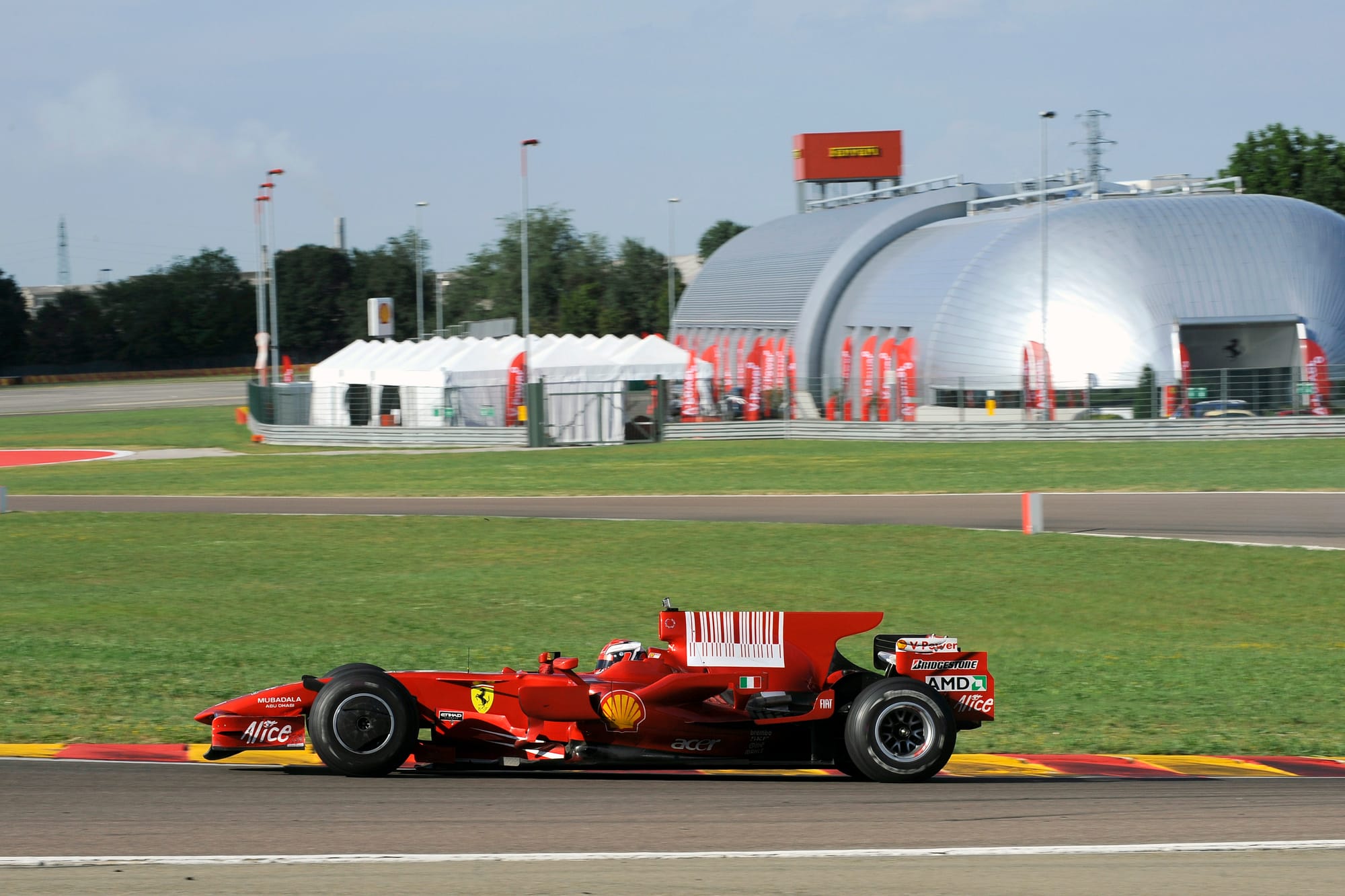
His performance made some headlines. "I set that unofficial track record in Fiorano for that car - which is still standing," Bortolotti recalls. Half a year later Ferrari would badly need a quick driver for actual F1 grands prix, due to Felipe Massa's terrible injury, so it's difficult not to think of that test in that context - even if Bortolotti himself admits "it would be unfair towards Felipe to say that, as a 19-year-old, without any experience, I would've been ready [to step in]".
"Obviously back in the day, when you're that young, you think you're ready to win the world championship, probably," he says. "I don't think I would've been ready in terms of being a complete racing driver, but I'd proven a few months before that that I was fast. So I don't know."
It never came up, anyway. He'd signed with Red Bull around a week after that Fiorano test, well before the Massa injury. That decision "allowed me to continue my career because I had no funds, no backings, no sponsors, anything".
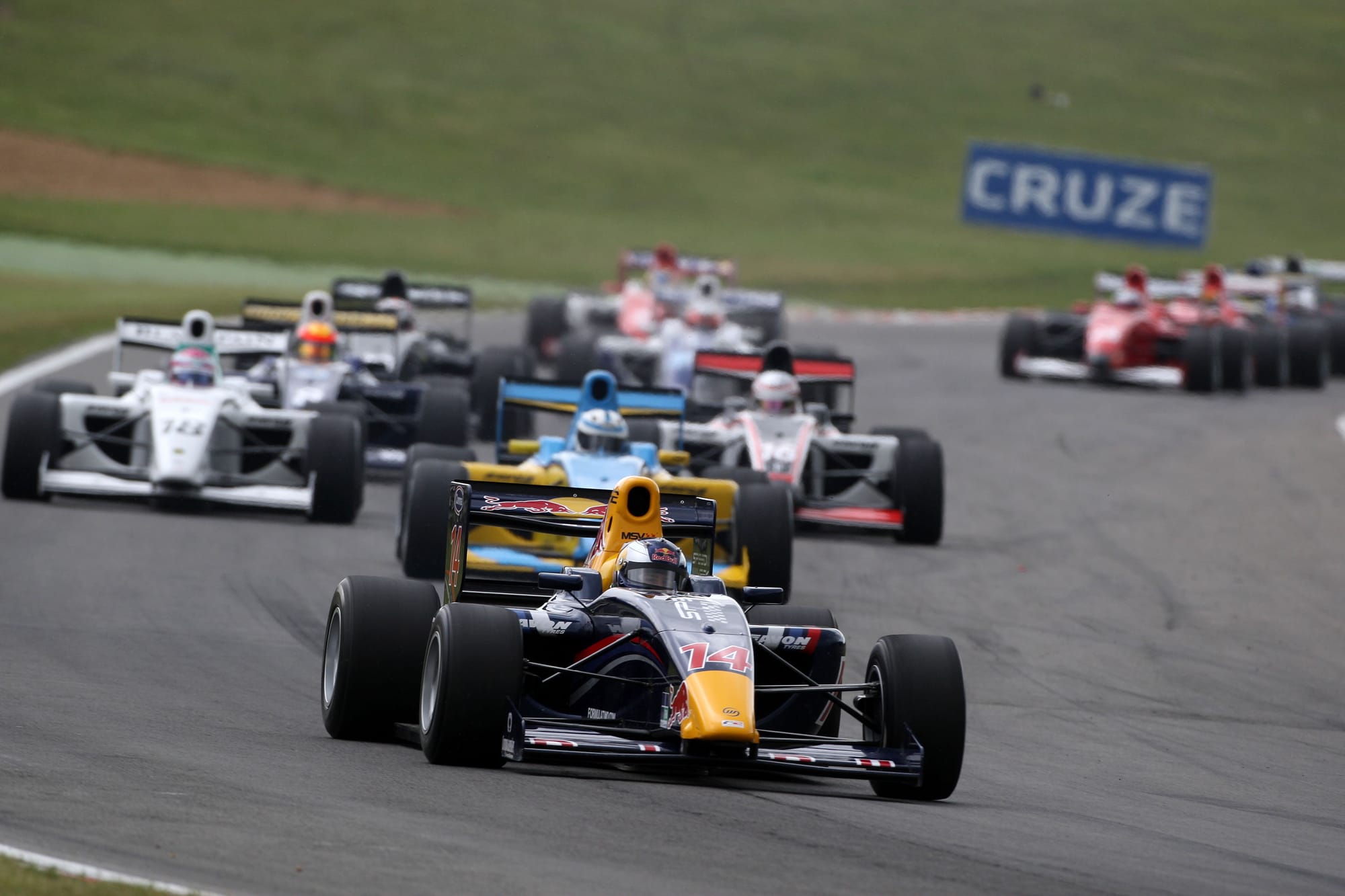
His sole season in the Red Bull fold, 2009, was spent in Formula 2 - not the current Formula 2, which at that point ran as GP2, but the at-the-time holder of the FIA F2 license, the single-make, lower-cost, no-teams (every driver had one chief mechanic assigned to them) experiment organised by Jonathan Palmer's MotorSport Vision in cars built by Williams.
"The first season in Formula 2 was my first-ever season on international soil," Bortolotti explains. "I did not know any tracks, until that point I had only raced in Italy.
"For sure I could've done more but it was also not bad at all."
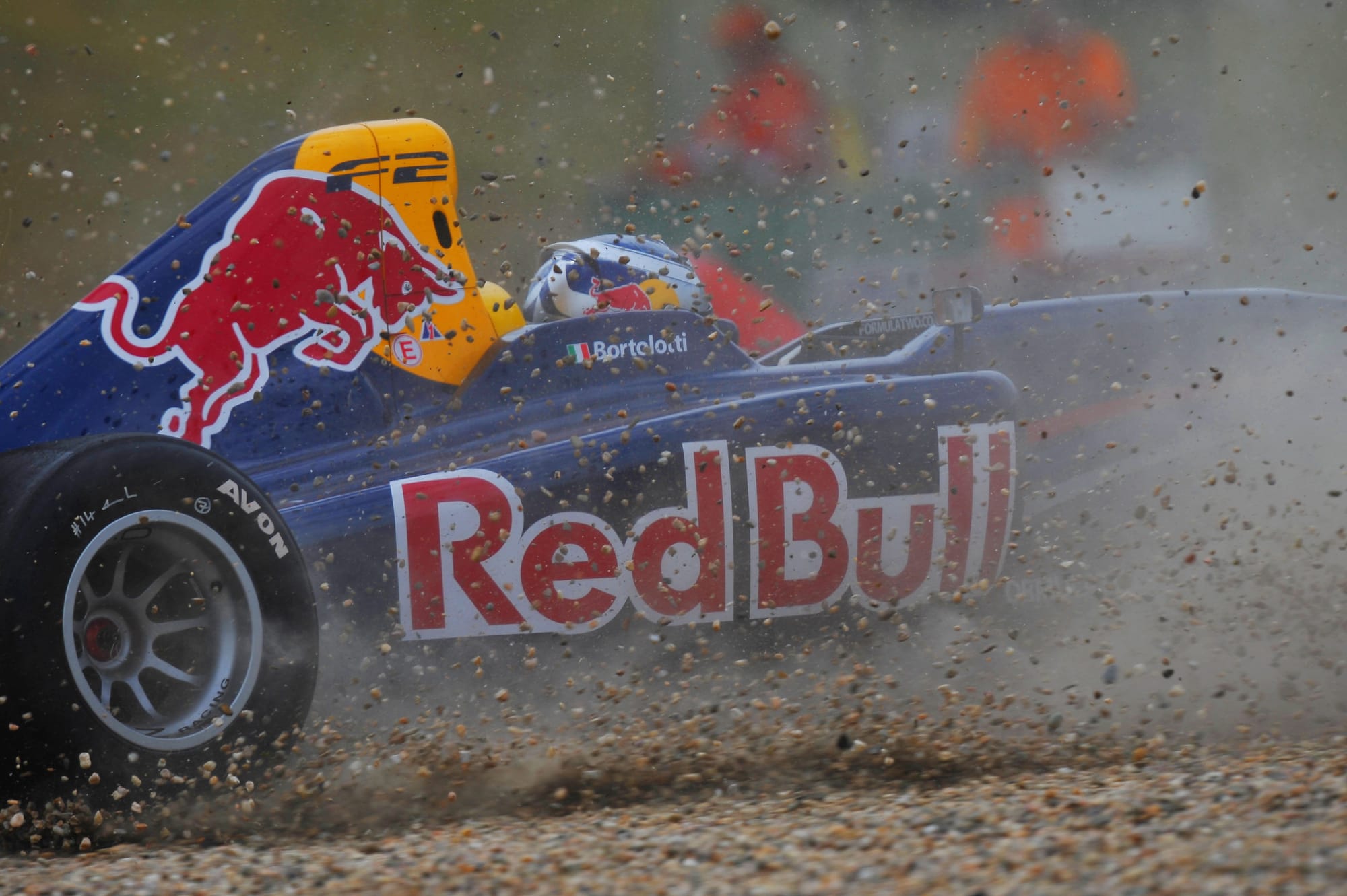
It was also the series' first-ever season. "The cars were not reliable and unfortunately I think we had several DNFs due to technical issues, one DNF because I made a mistake. And the same happened to Mikhail Aleshin, the same happened to Robert Wickens, those were my Red Bull [Junior Team] team-mates. And obviously Andy Soucek won the championship, he deserved to win, don't get me wrong, but he also had the least technical failures, this played a factor. And we were still in the game for runner-up until the very last race. And then I had an engine blow up in Barcelona.
"It was definitely not a perfect season but it was not the worst season of my life, definitely not, it was actually quite a solid one."
It was, Bortolotti points out, at least "solid" enough to keep Red Bull interested. "I was not kicked out," he emphasises, with Helmut Marko, the ever-charismatic head of the programme, having communicated to Bortolotti the intention to keep him in the ranks into 2010. Before that, Bortolotti even drove the Toro Rosso F1 car in the rookie test.
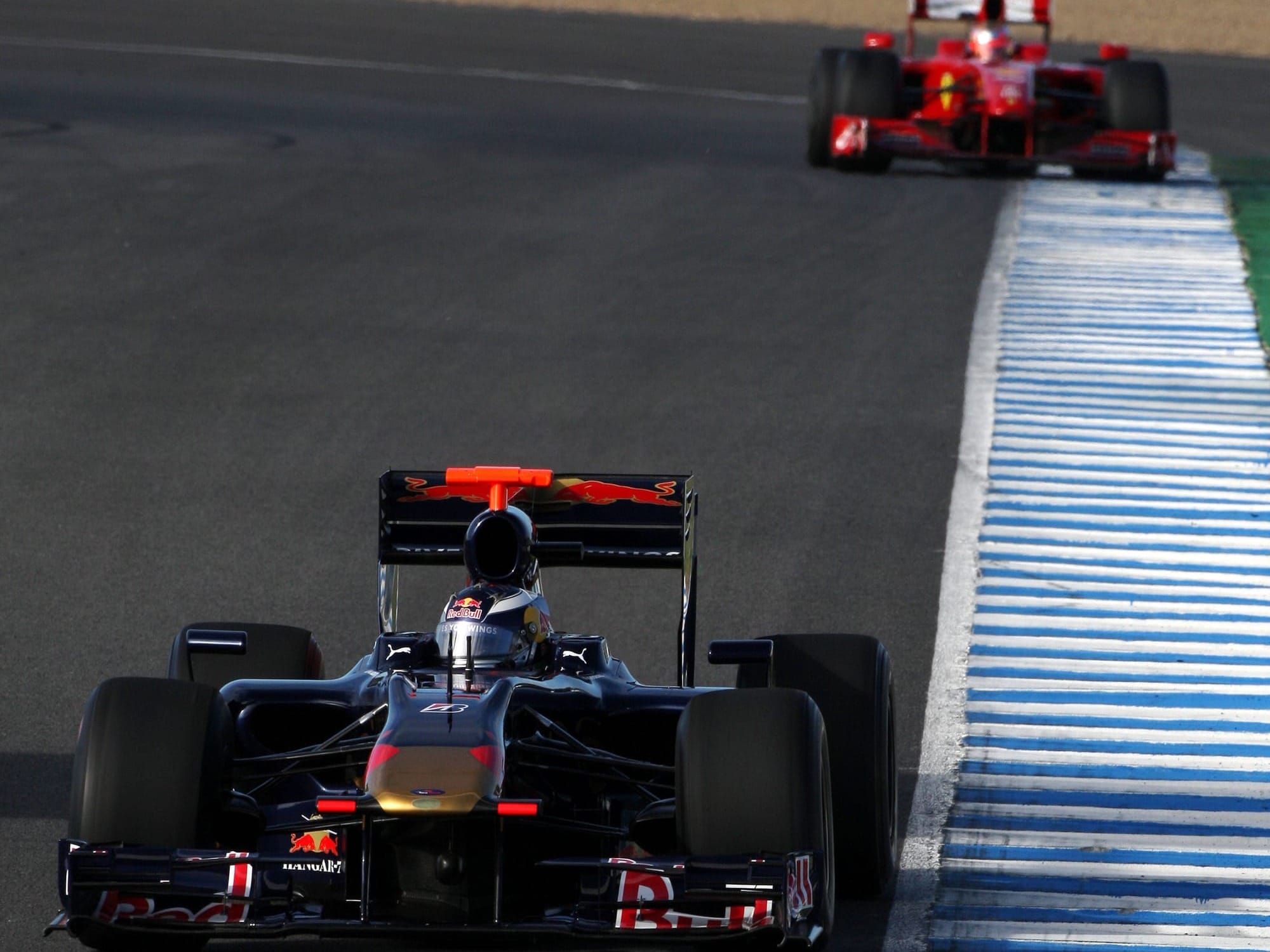
Bortolotti, though, had career stability at the forefront of his thinking - and that's just not something you associate with Red Bull.
"The problem was, for me back then the Red Bull Junior Team was hard but fair, but if you had one, two, three bad races, for whatever reason, it could've quickly been over. And then it would've been middle of the season and you kind of would've been nowhere, without a seat."
He nods along when I put to him the example of Lewis Williamson, a driver who two years later would be axed from the Red Bull programme five races into the Formula Renault 3.5 season - and whose career in single-seaters never recovered.
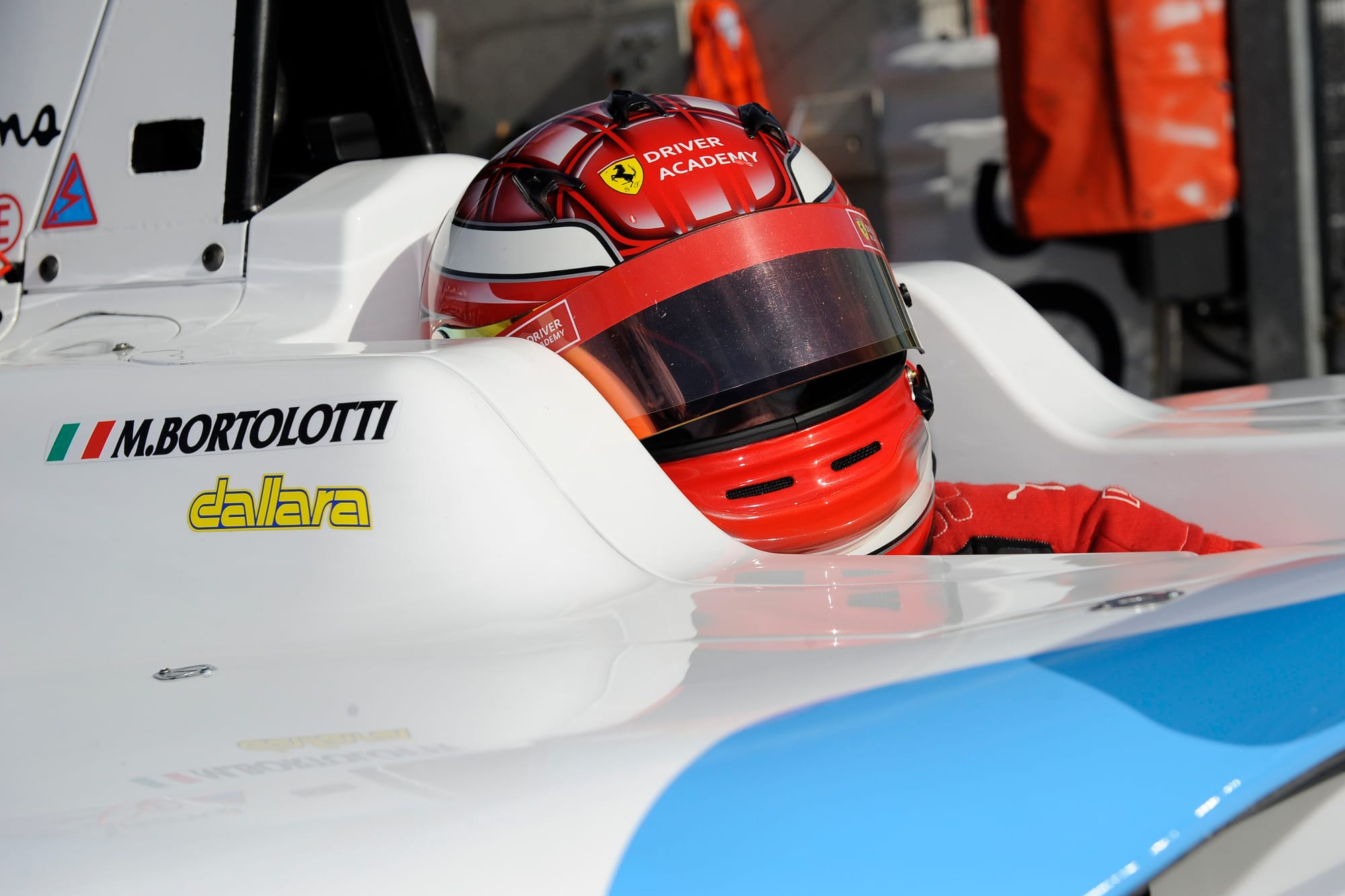
"And on the other hand I had an offer from Ferrari that on paper looked more stable for me, and a little bit more defined. Unfortunately that did not turn out the way I hoped."
Bortolotti won't call it a mistake in hindsight - but he would've liked to know how a Red Bull stay would've played out.
"I wouldn't say an issue, but definitely not helping, was the fact that I was a young kid with zero motorsport background in the family, no management, no manager behind trying to guide me in some way. I always tried to be independent, in a way I also wanted to make my own decisions.
"And obviously 15-16 years after it's easy to say what would've happened. I must say, in life you take the decisions in that moment, sometimes it works out, sometimes you learn from it. We don't know what would've happened if I would've stayed longer. On the other hand, I'm not complaining - because in my time at the Ferrari academy, I got the chance to do five further F1 tests with Ferrari, which as I said before helped me to grow, helped me to improve, and helped me on my development on becoming the driver I am now."
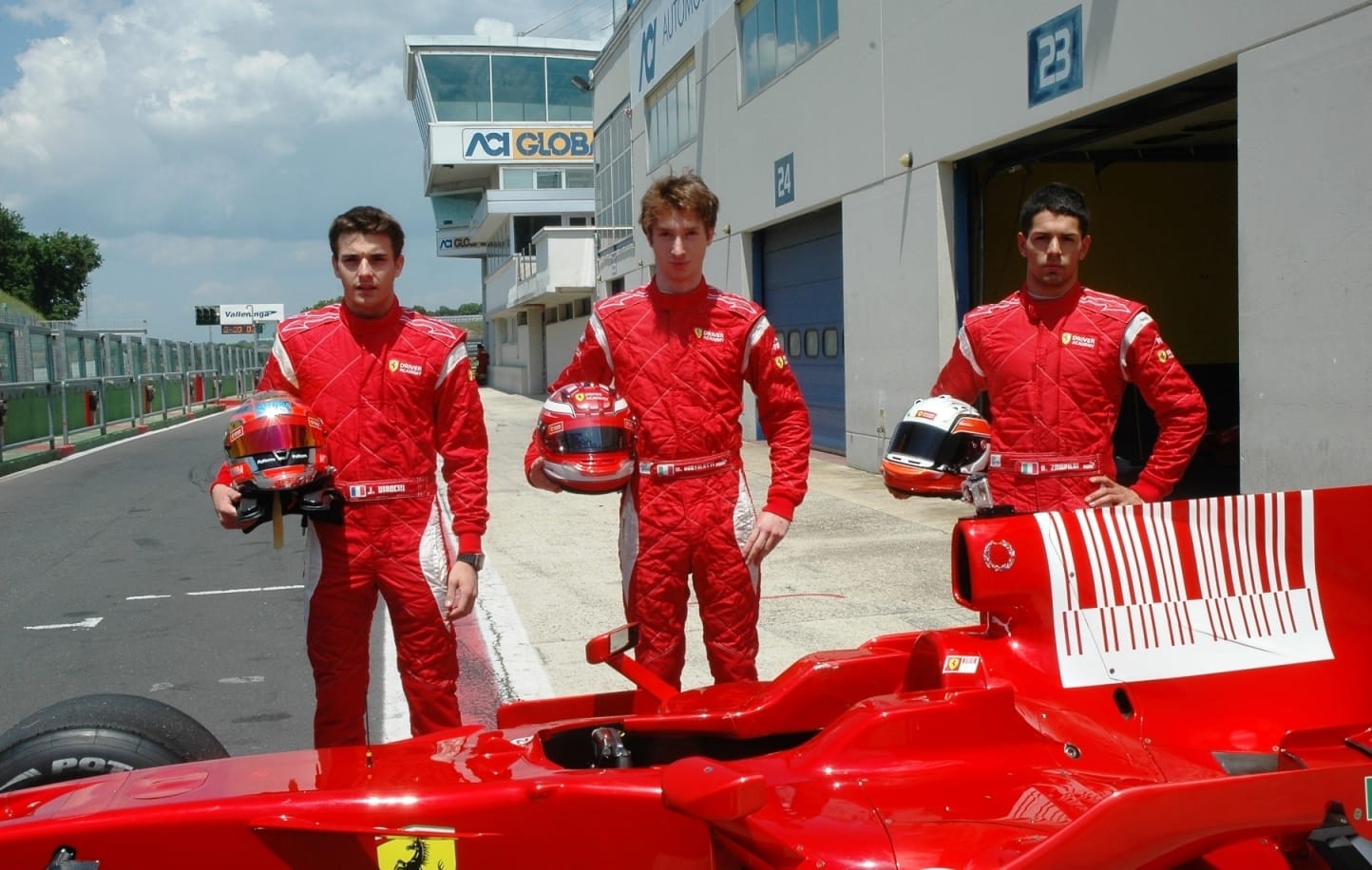
When it came to F1 junior academies at that point in time, Red Bull was the big dog, the exemplary model. But Bortolotti believed - and still does - that even as he signed with the energy drinks team, the Fiorano test in 2008 made a difference to Ferrari's strategy.
"After the Ferrari F1 test, they did not have any sort of academy or something for young drivers, I think they were really surprised that a young 18-year-old kid can be that fast actually out of the box in an F1 car, and I think this test changed a little bit the perception of Ferrari towards young drivers, and opened a little bit more their mind.
"Back in the day the mentality of Ferrari was completely different - the mentality was, 'We will get the best driver on the market, we will pay them tonnes of money and we will just take the finished [product], kind of, experienced drivers'. And it was totally different to the mentality of Red Bull, obviously. So that was actually a bit of a special era, where things were changing."
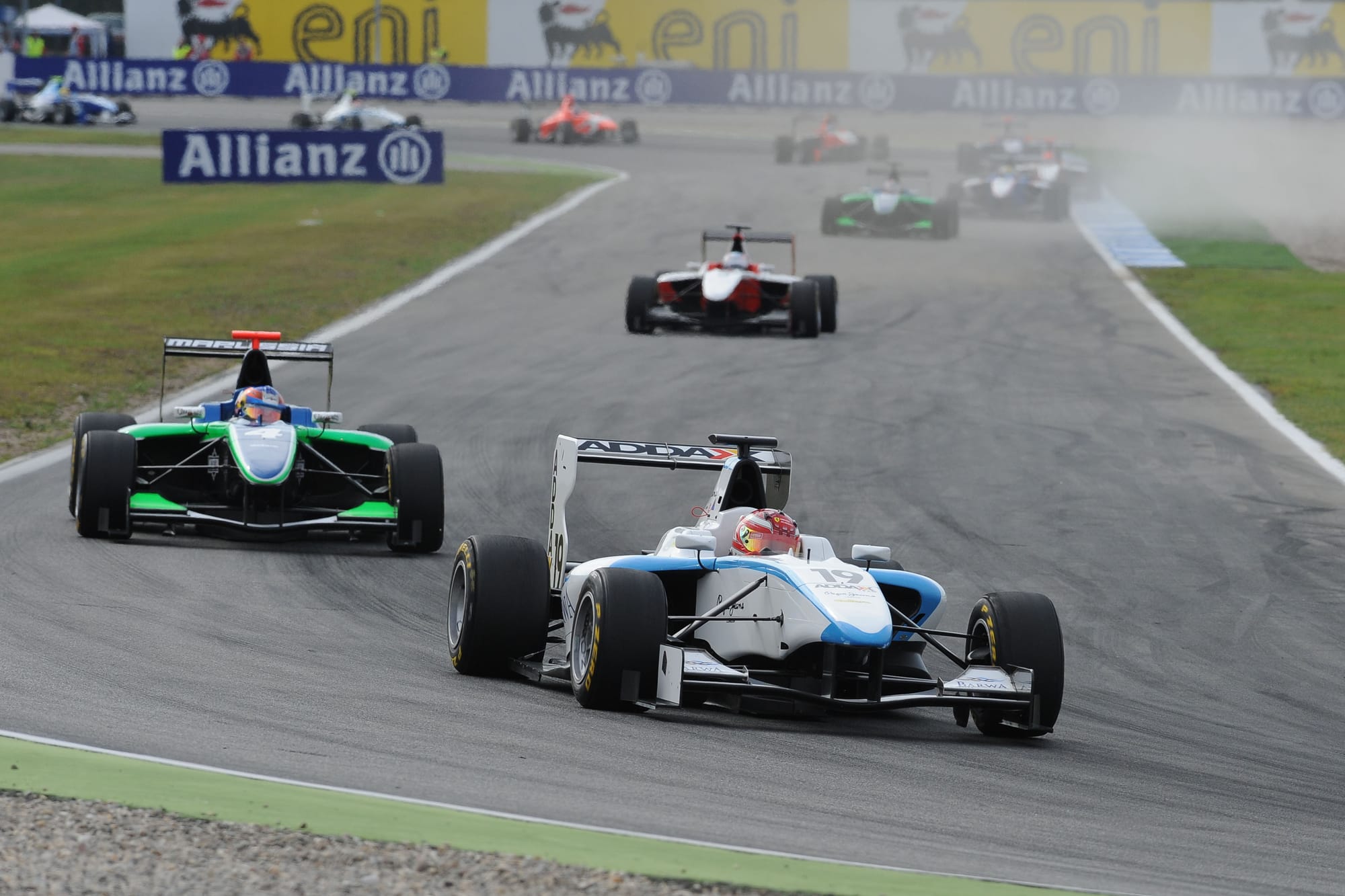
That Ferrari mindset change, whatever moment it truly set in for good, is one the Scuderia is reaping the benefits from right now, its lead F1 driver, Charles Leclerc, a homegrown talent through and through.
But it was never going to cast as wide a net as Red Bull in that time, and Bortolotti's tenure ended up just a one-year association. "Many, many things changed within the Ferrari academy," he explains - and he specifies that he felt Ferrari was reluctant to commit a lot of backing. "Other drivers were basically bringing budgets to be part of the academy. Something that in my eyes looked like a Red Bull-style academy, which means they pick you, they support you, they pay everything for you and they try to bring you to F1, was something that did not happen there."
It did bankroll Bortolotti - and also the late Jules Bianchi, who it did take to F1, a "really good guy that is deeply missed" who Bortolotti spent a lot of time together with in Fiorano and Maranello, "training together, playing football in the evenings, travelling together".
But as Bianchi performed impressively in F1's main support series, GP2, Bortolotti floundered in the inaugural season of the other support series, GP3.
"I must say that GP3 year really was negative for me," he says. "Then obviously they [Ferrari] had enough data to value my performances, because in the F1 tests I was strong.
"Always on a level with Jules, we were really close to each other, sometimes I was faster, sometimes he was faster. We were really doing well, but my season in GP3 was not positive."
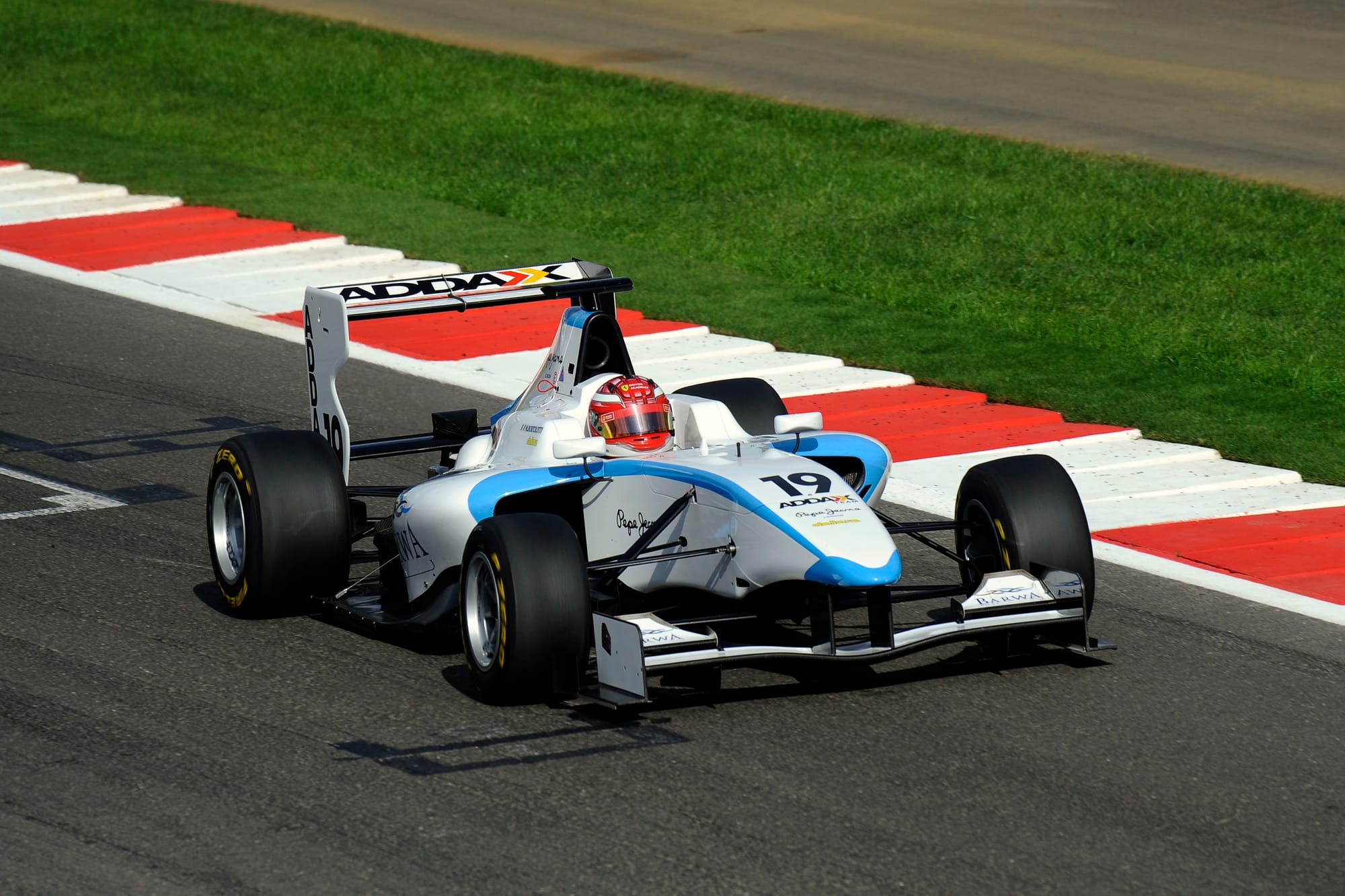
How 'not positive'? The on-paper results are unkind: 11th place, one podium, 16 points of the 25 total scored by the Addax team's three-car line-up. "A disaster," Bortolotti admits.
"Again new series, again issues, again teams that managed to learn the car much quicker compared to other teams - and if you see our trend, at the beginning we were completely lost, in the second half of the season we were consistently in the top five, top six. We even had a podium, so we actually got there - but too late."
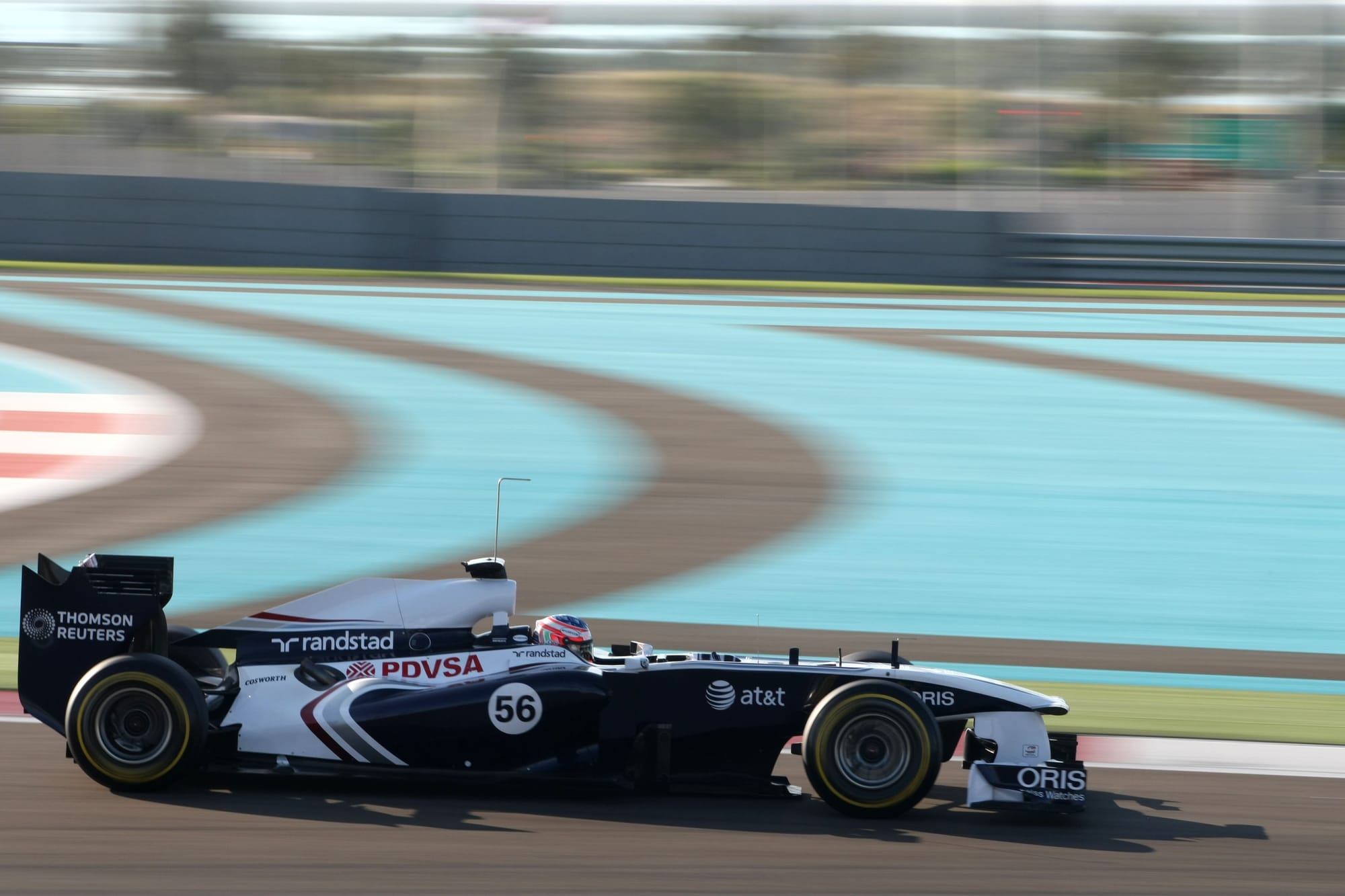
On his own again, Bortolotti returned to F2 and won the title, which carried with it a reward in the form of a Williams seat for the F1 young drivers' test.
But with the test ban in effect it was a lot more of a development-oriented day than it used to be, so there was no real chance to 'wow' a team - and Williams was in no position to be 'wowed', anyway. It was the end of the F1 road for Bortolotti then and there.
"I knew it. I knew it. And Williams back in those days, they were in a different situation to now, for sure. We all know who got the drive in the following seasons. There was a lot of backing and sponsorships involved that I was not able to bring.
"And honestly speaking, it would've never been my goal to get to F1 with a bag of money. This is not what I wanted to have.
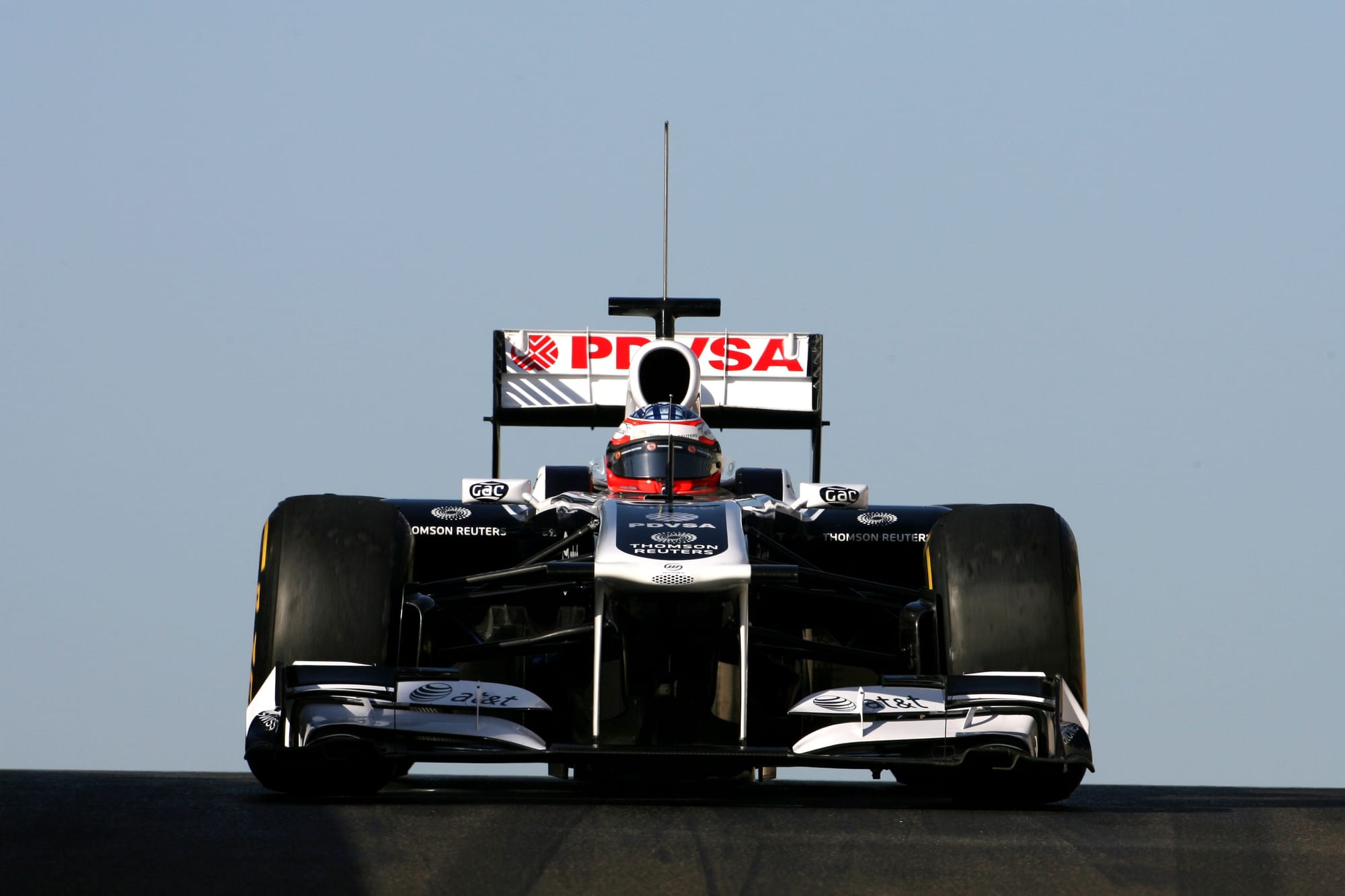
"If I make it to F1, yes, OK, but I want to be a professional driver in a way that I get paid, and this is my job, but it wouldn't have been my thing to get there with I-don't-know-how-many millions of sponsorship, that's not what I wanted to have."
"After all, what if the money runs out," I sympathise. "Or the next guy shows up with double amount and you're out!" Bortolotti replies.
"For me the F1 topic was done in Abu Dhabi after that test, I knew it already. You can never be 100% sure because it can always happen that a situation turns up but in my mind, realistically, it was done, and my goal was to be in sportscars, to be a professional."
And then it didn't happen.
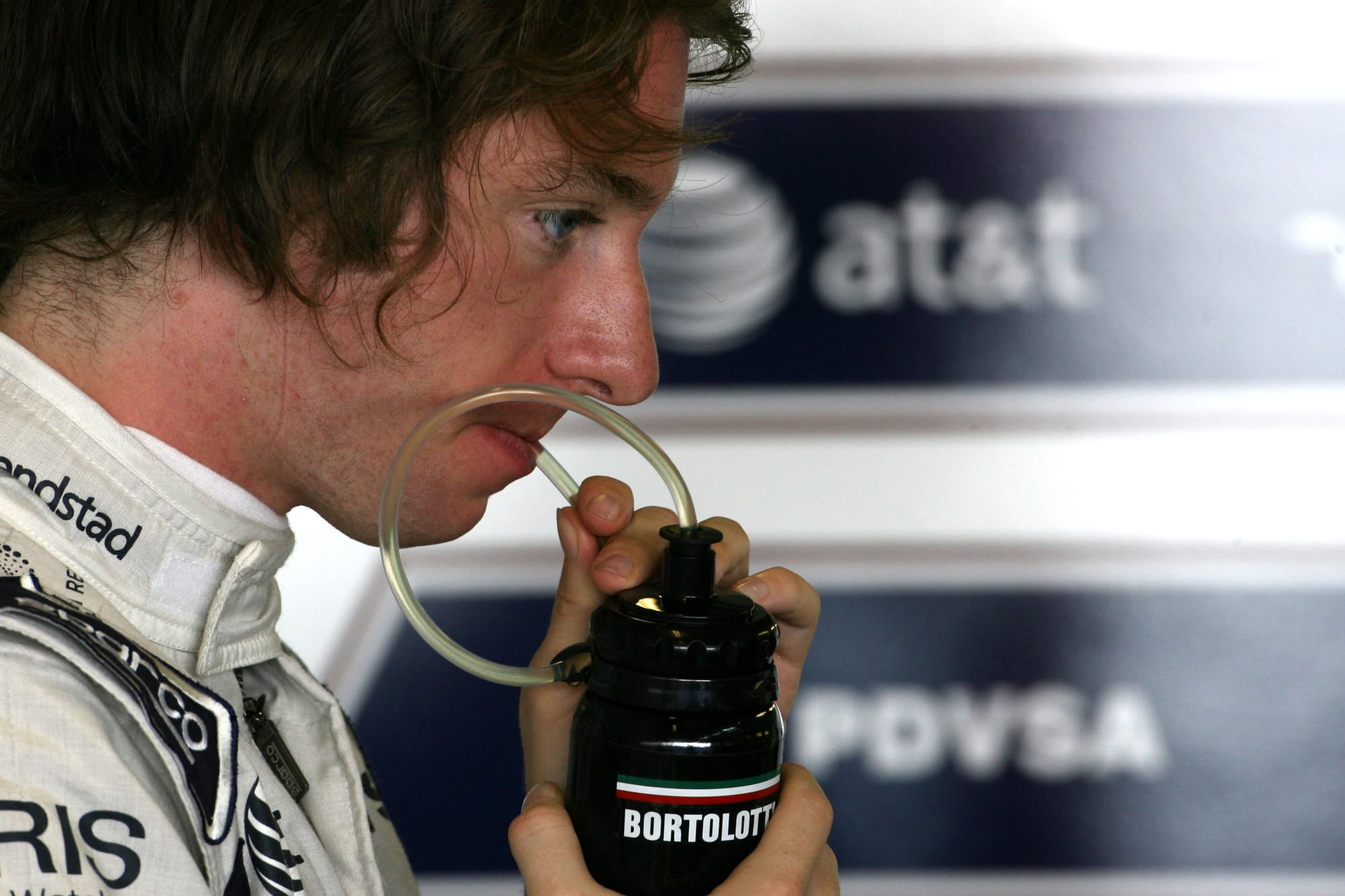
Bortolotti can probably feel a couple of different ways about his Red Bull-versus-Ferrari choice. But another big one arrived ahead of 2012, and the evidence seems crystal clear that there he made the wrong bet.
"I was really close to entering the Porsche junior programme - and it would've been more or less...everything was done, I would've been part of the selection, let's say.
"And then I get a call from Audi to do an Audi DTM shootout. My dream was to be in DTM since I was a five-year-old kid.
"I had to say no to Porsche, because they wanted a commitment [immediately] - if I get the job, that I would've been part of it. So I had to cancel that to put all-in on this DTM test, which was actually positive.
"People like Nico Mueller, Rene Rast, Johan Kristoffersson, myself were there."
Mueller, Kristoffersson, particularly Rast - all end up doing notable things as Audi drivers. Bortolotti ends up in Audi factory colours himself down the line, albeit only for a brief stretch that doesn't appear to have been the happiest.
At the time, though, "we all didn't get the job". Adrien Tambay, son of F1 grand prix winner Patrick, did, and he'd get five DTM seasons out of it - seasons of occasionally quite impressive production but never quite at the heights he and Audi would've hoped for.
"So that was another thing I really hoped to be able to get into, which didn't work. After that for me it was clear that now it's not really looking good for my career," Bortolotti says.
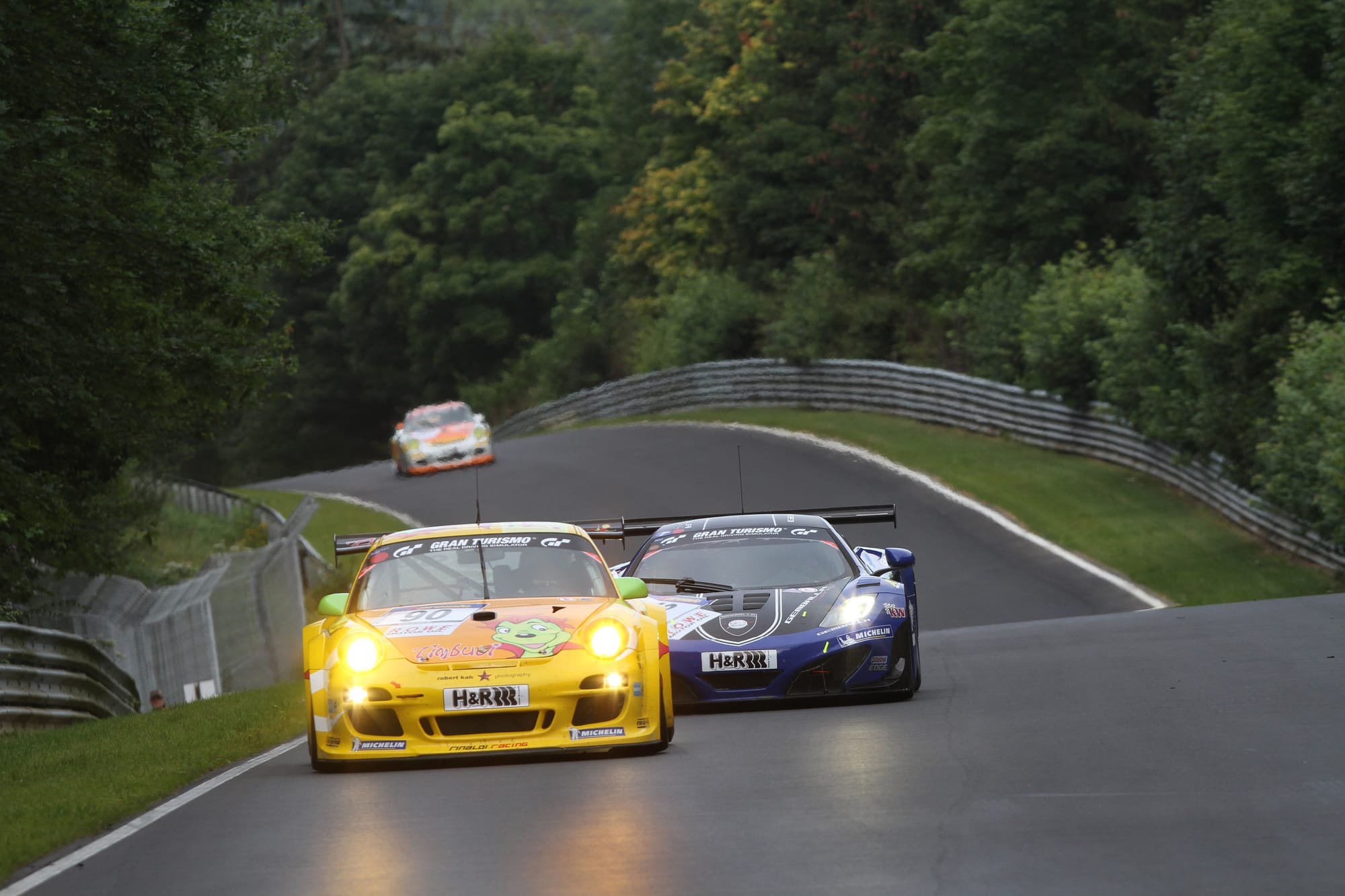
"And that season I only did one VLN [Nordschleife endurance series] race, with a Porsche. Just tried to pick up opportunities where it was possible - then at the end of 2012 it was pretty much clear that I lost the belief and didn't want to know anything."
It was game over. Bortolotti had set his mind on a Masters' degree in sports management, at the Johan Cruyff Institute in Barcelona, but doing it online while travelling, staying "in the sports environment - not necessarily motorsport".
"I just wanted to get the education I wanted and to focus on that. Because for me the racing driver career was done."
Then, the phone rings. And a series you might not even know about, a series that will end in 2013, running as part of wider group of championships that itself won't stick around for much longer, saves Mirko Bortolotti's career.
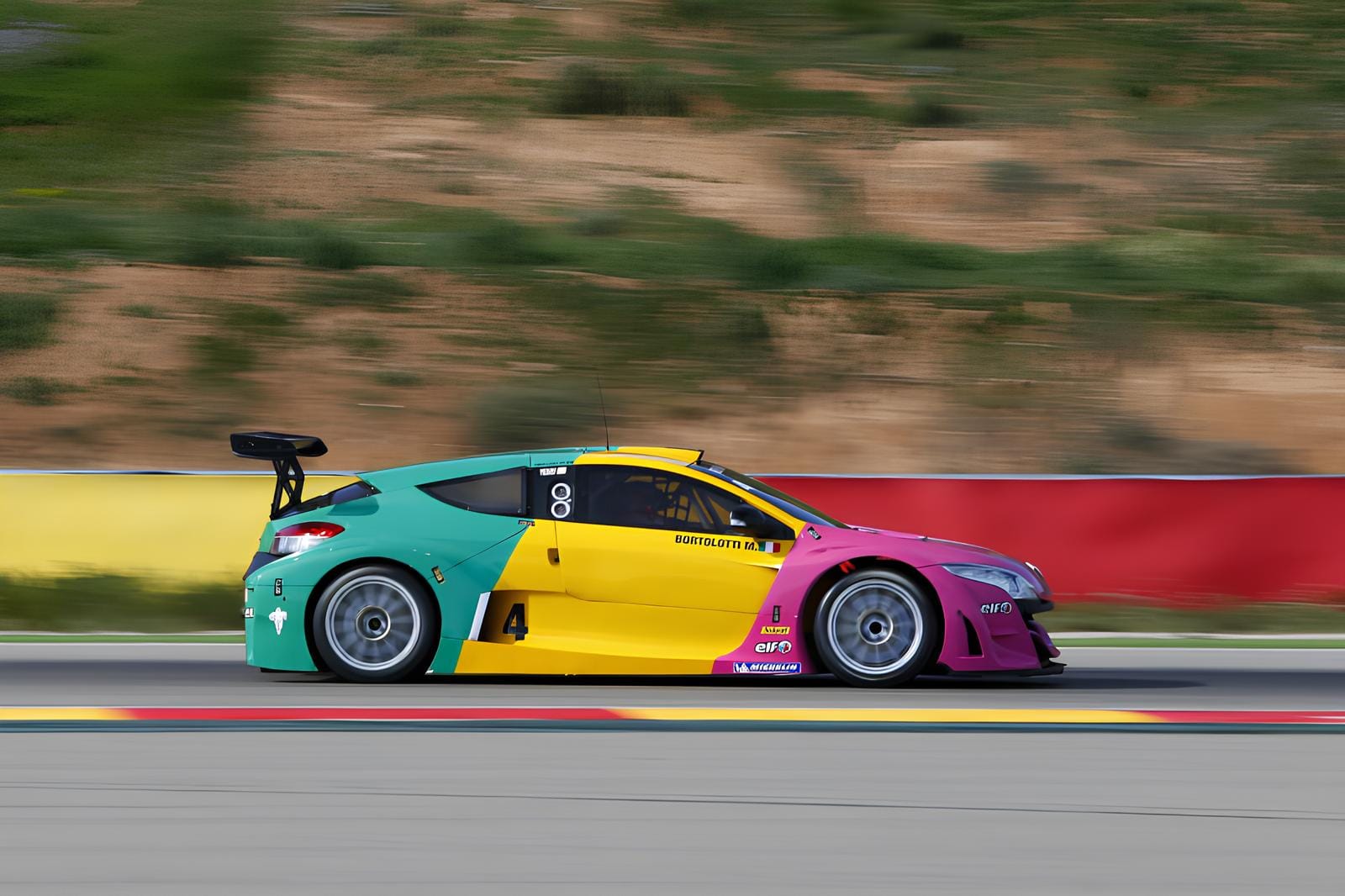
"I get this one phone call from a guy I didn't even know, Jerry Canevisio, the team boss of Oregon. He calls me up and he says: 'You don't know me - but I know you. I know what you've done, I know who you are. What are you doing next week?'. I was like, 'Why? What's the point? Why are you calling me?'. 'If you are free, I want to invite you to Barcelona after the World Series', that was the last race of the World Series, and on the Monday after the race they had a test. They wanted to test, I think, seven, eight drivers for next season."
The World Series in question is the World Series by Renault. The championship within it is the Eurocup Megane Trophy. And Bortolotti is about to commit himself to being its last-ever champion.
"So they called me up, if I come to Barcelona, they pay everything, they want to put me in the car. I went to Barcelona, thought about it, next day said, 'OK, nothing to lose, let's go'. After that test, they said, 'We have five cars in the team, we pay your car for next year, whatever you win in terms of prize money [you keep]'."
The exception was a prize wristwatch. "If you win the watch we want to keep the watch - I said, 'OK, I don't care about the watch, I just want to drive'.
"And that's what actually helped me to stay alive in terms of motorsport, and I managed to win the title in 2013. On paper, probably the least important. The least important in terms of prestige. But probably for the moment I was living, it was the most important. Because it opened the door into closed-cockpit racing for me. It actually opened my door to be in Lamborghini the next year. That's basically how I ended up there."
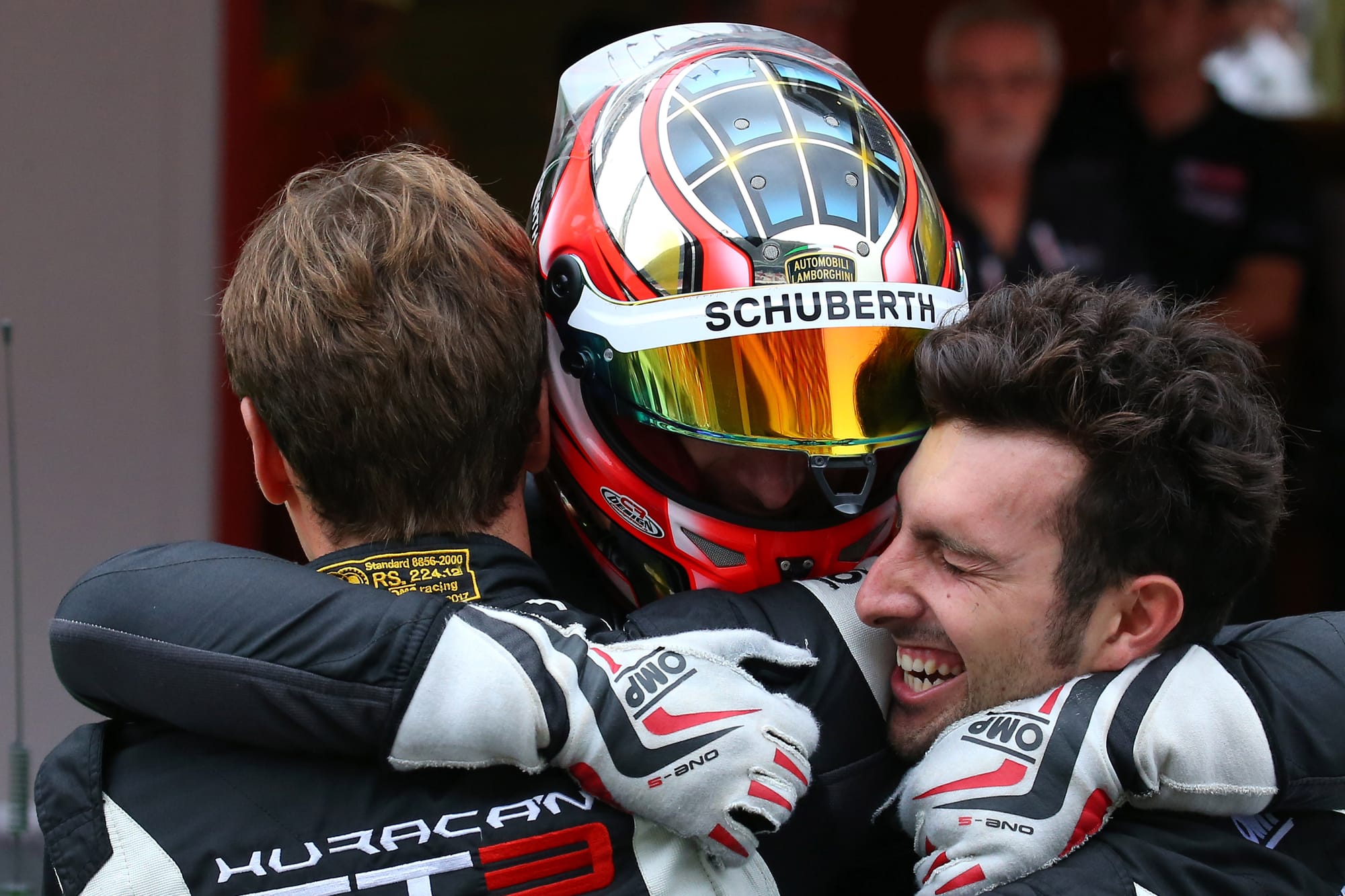
That was only the beginning of it, but it set the path. The next years brought class wins in IMSA, and no shortage of GT World Challenge Europe silverware (including an Endurance title in 2017, above) - but it's only now that the proverbial floodgates have opened up, first with the DTM triumph and then with Spa.
The latter came, as mentioned above, right after Bortolotti engaged in some obviously egregious red flag obliviousness at the Nordschleife earlier this year, which briefly made him the butt of jokes online but also left no shortage of feeling that he hadn't been punished severely enough, in not being parked for the 24-hour race.
He apologised in the aftermath, but as we talk it is clearly and glaringly a sore subject - and there's more than a hint of defiance.
"It just helped me to separate the people that I know I can trust and the people that I should quickly forget out of my life. It really helped me understand who really is a friend and who isn't," he says.
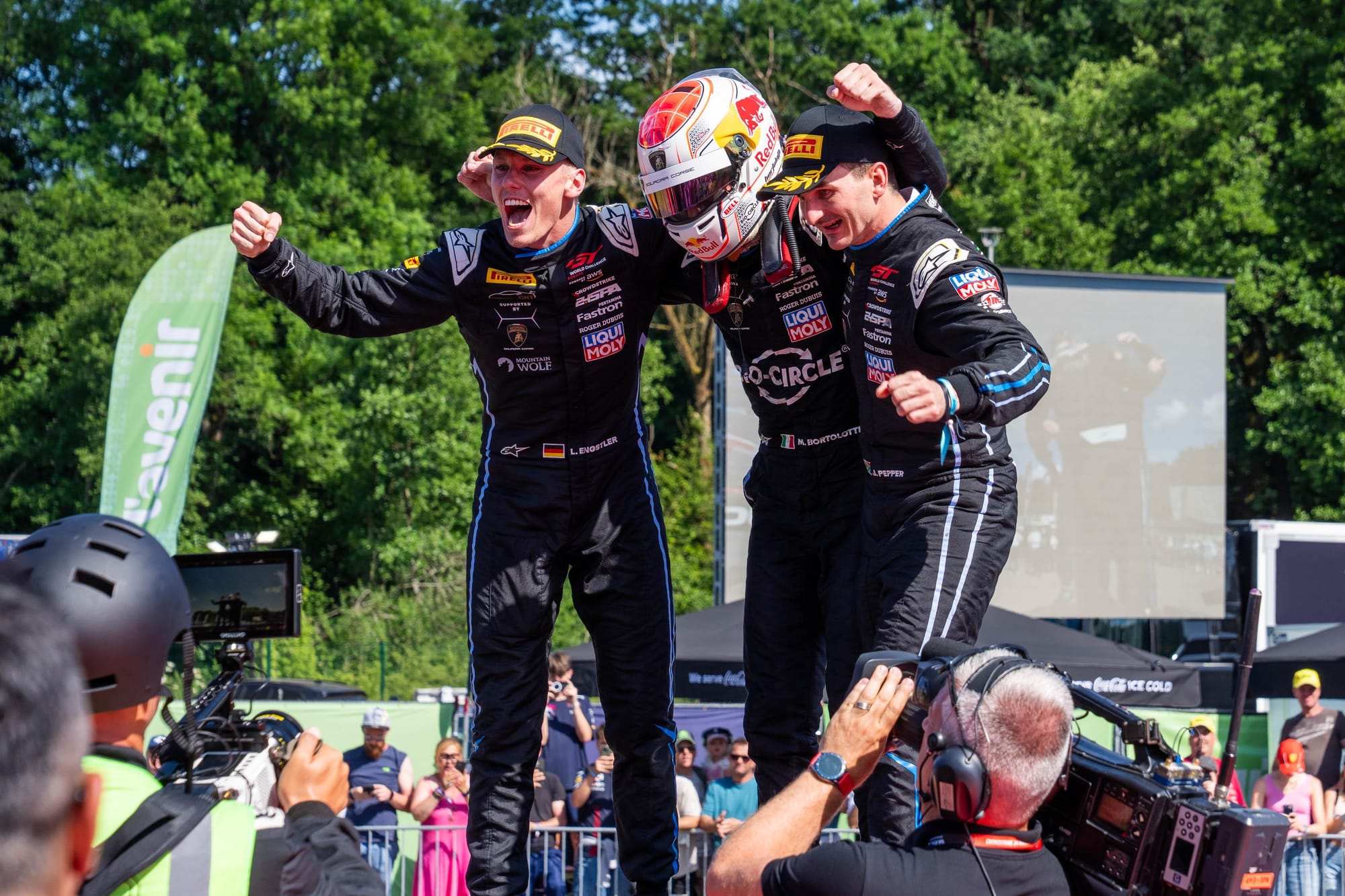
"And so I see it really, really positive what happened, and I gave the right answer in Spa."
But Spa is a much better answer to what happened 15 years prior, to a career nearly snuffed out by circumstance. It can't help but make you wonder how many potential motorsport giants had to walk away abruptly, never to run the races they could've won and never to be remembered by even those with an encyclopaedic knowledge of the sport.
For Lamborghini, which has its LDMh programme on ice now and for which its GT3 exploits are the end all and be all again, Bortolotti is certainly a giant.
"It's been 10 intense years where we had to start this project from zero, where we did not start with...nobody gave us a finished, winning product. So we had to develop the car, we had to develop ourselves as a team, on all aspects that are needed to win.
"To have the opportunity and the trust and the support from the factory, on good and bad days - they kept believing in me, they gave me a chance in a moment of my career where nobody else was willing to give me a chance anymore.
"Unfortunately I never had the budgets to race for the best teams in single-seaters or to prepare myself doing four, five championships in one year. This was not possible, I only had this one-shot mentality, opportunities, where I had to make the most of it to be able to be in the race car the next year or the next race.
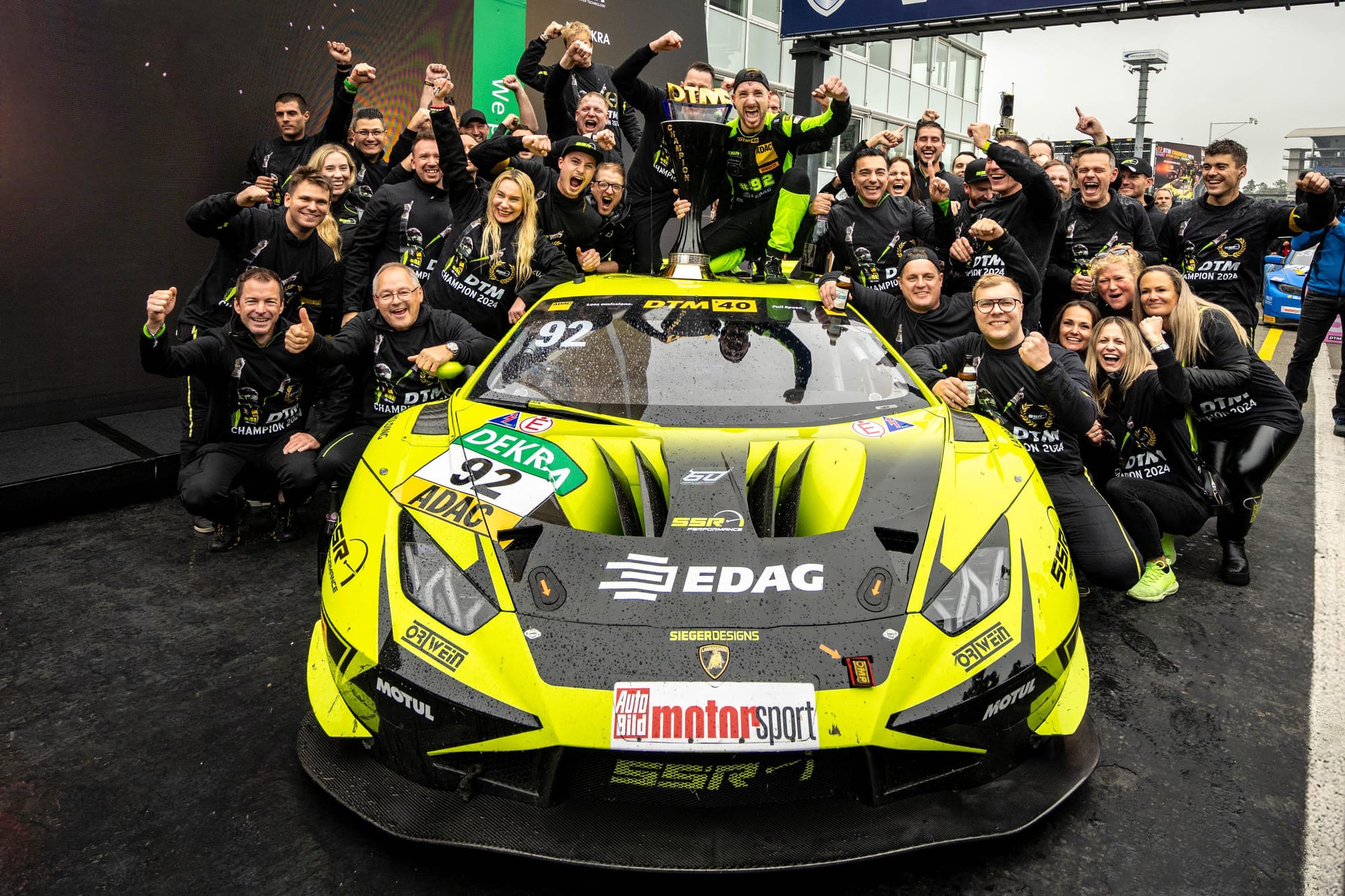
"[Lamborghini] gave me a chance to be a professional racing driver, that believed in me in a crucial moment of my career - and I think I fully repaid the trust that they've given me.
"This is something also really important to me. And together we built what we had right now."


